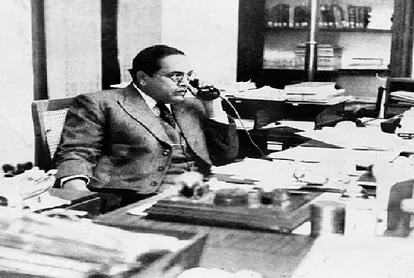India's great leader, social reformer, and constitution maker Baba Saheb Bhimrao Ambedkar was born on 14 April 1891 at a place called Mhow in Madhya Pradesh. Dr. Ambedkar, belonging to the Dalit community, fought for the rights of Dalits in his life. He obtained a degree in Law and Social Sciences and fought for the rights of Dalits on the strength of his education.

Baba Saheb made an unprecedented contribution to the making of the Indian Constitution. Demanded the guarantee of rights and equality for Dalits in the Constitution. He later died on 6 December 1956. There are many interesting stories related to the life of Baba Saheb Bhimrao Ambedkar, who is honored for his social reform works all over the world including India, which inspires and also shows him as an ideal man.
Promising Ambedkar faced untouchability
Ambedkar was the only one among 14 siblings who succeeded in the school examination. He was very bright even compared to other children, but despite his ability, Ambedkar was made to sit separately from other children in school. He was not allowed to sit inside the classroom. When they felt thirsty, someone from an upper caste would pour water into their hands from a height, because touching water vessels was not allowed.
How was the name Ambedkar kept?
Ambedkar's father was Ramji Maloji Sakpal and his mother Bhimabai, but on the advice of a Brahmin teacher Mahadev Ambedkar, Ambedkar removed Sakpal from his name and added Ambedkar, which was in the name of his village, Ambavade.
Baba Saheb's Brahmin connection
Baba Saheb had two wives. He got engaged to a nine-year-old girl Ramabai as per Hindu rituals. After marriage, his wife gave birth to his first son Yashwant. After Ambedkar's death, the second left in the family was Savita Ambedkar, who was a Brahmin by birth. Before marriage, her name was Sharda Kabir.
Troubled by casteism despite being a professor
After his scholarship ended while studying in London, he returned home and started working as a professor at a college in Mumbai. However, even here he had to face casteism and equality. For this reason, Ambedkar started working to provide equal rights to the Dalit community. He had demanded separate electorates from the British government, which was also approved, but when Gandhiji went on a fast unto death in protest, Ambedkar had to withdraw his demand.
(PC: PIB)










